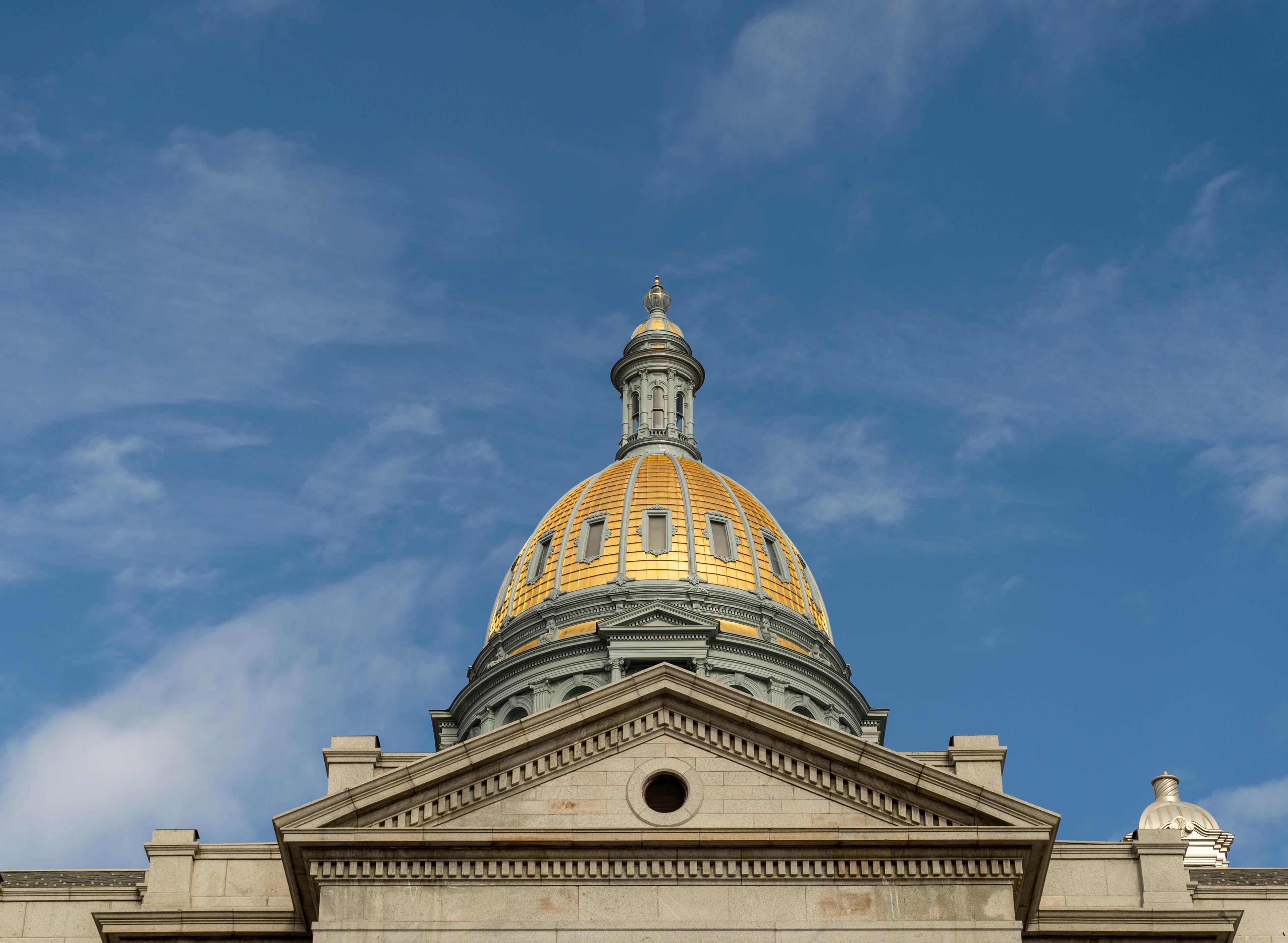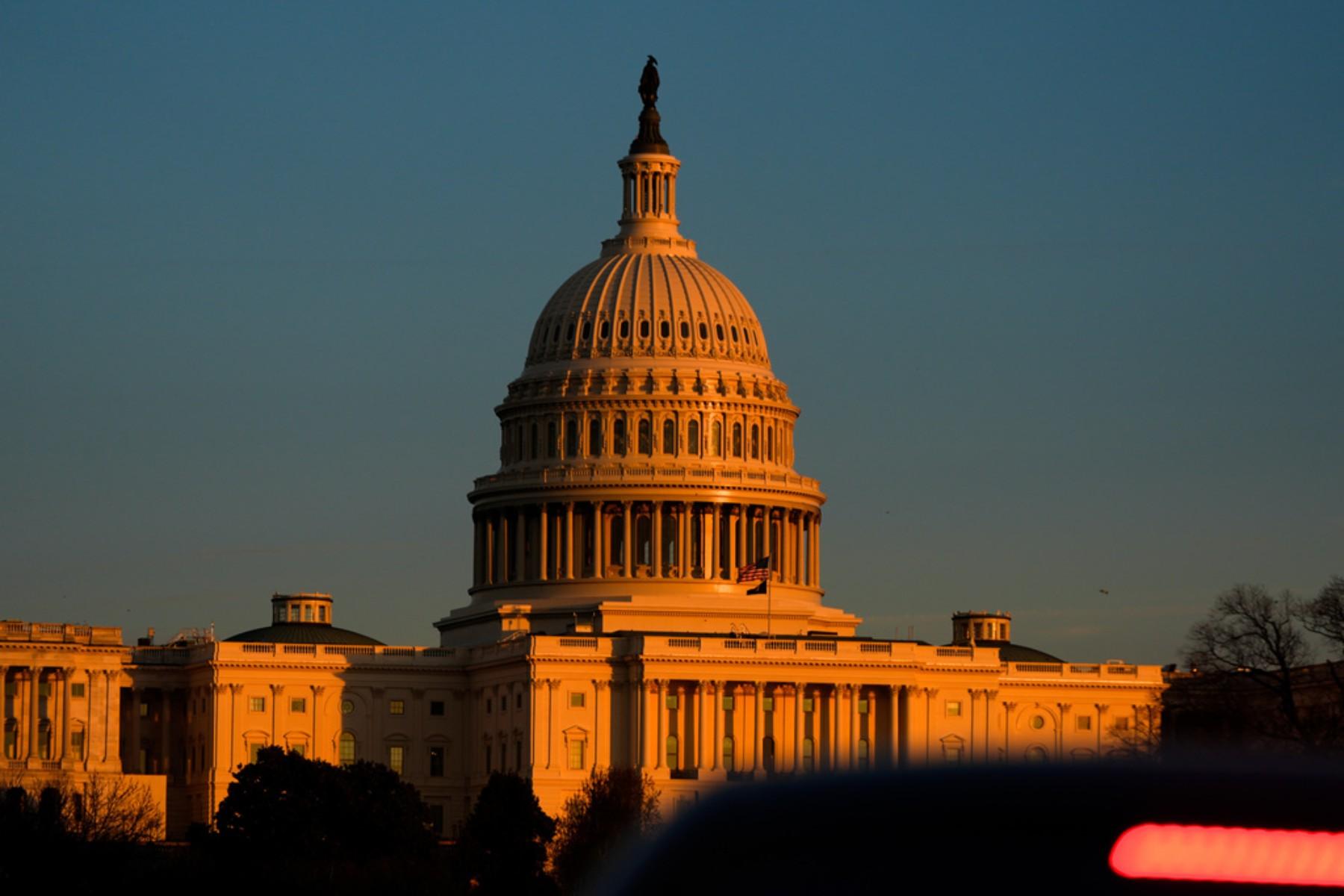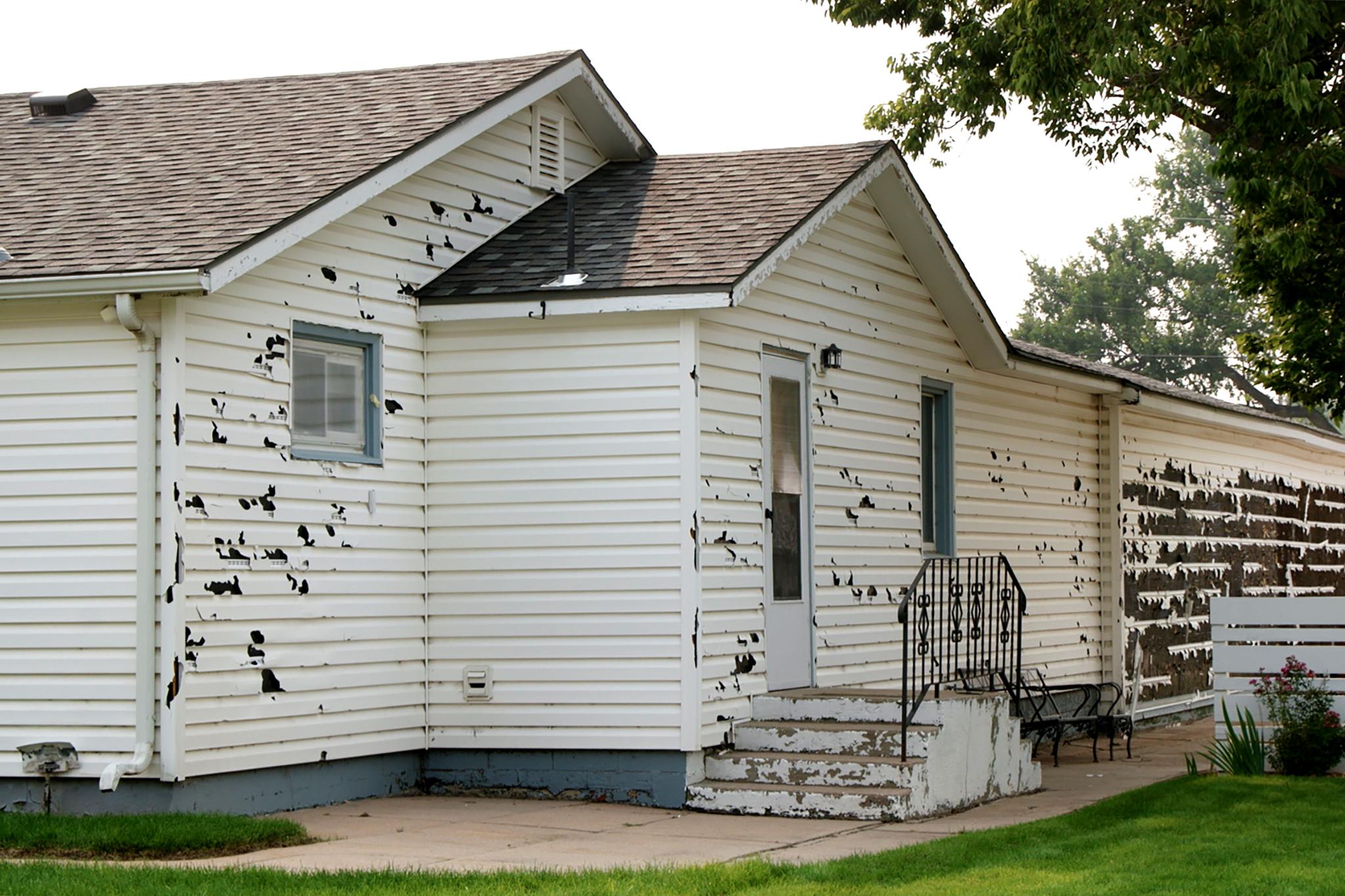
This story was produced as part of the Colorado Capitol News Alliance. It first appeared at coloradosun.com.
Colorado lawmakers have a remarkable amount of work on their plate as they return to the Capitol for a special legislative session.
Chief among their tasks is plugging a roughly $750 million hole in the state budget caused by tax policy changes made through the One Big Beautiful Bill Act, the Republican federal tax and spending measure signed by President Donald Trump in July. The budget deficit — estimated between $680 million (per Legislative Council Staff) and $783 million (per the governor’s office) — stems from state tax revenue reductions because the state tax code mirrors the federal one.
Also on the special session agenda: trying to prevent a big increase in health insurance premiums, expanding and shoring up food-assistance programs, and deciding whether and how to tweak Colorado’s first-in-the-nation artificial intelligence regulations.
Here’s what will be debated during the special session, which starts Thursday, and what you need to know to follow along.
Where Democrats plan to close tax loopholes and breaks
Democrats are bringing bills that would close or narrow four business tax loopholes and breaks to increase state tax revenue by about $350 million in the current fiscal year, which began July 1.
One bill would eliminate the state sales tax vendor rebate starting Jan. 1 to generate $56 million. The rebate lets businesses with up to $1 million in taxable sales per filing period (generally monthly) keep up to 4% of their sales tax collections each month, up to $1,000.
The rebate is aimed at reimbursing businesses for the strain of calculating and collecting sales taxes, but Democrats argue it’s unnecessary now since that work is mostly automated.
“This dates actually to the 1930s, when things used to have to happen on paper,” state Sen. Mike Weissman, D-Aurora, told his colleagues during a caucus meeting this week.
However, Democrats are expecting pushback from the business community.
Another bill would, starting Jan. 1, expand efforts to prevent corporations from shielding their revenue from taxation by routing it through other countries. The measure is estimated to generate $35 million to $40 million for this fiscal year.
Another piece of legislation would eliminate a tax break for insurance companies that have a “regional home office” in Colorado. The incentive was aimed at boosting the insurance workforce, but Democrats say that hasn’t panned out and some insurers have actually cut jobs in the state.
“This credit goes back to the year 1959, and since that time, and especially between 2022 and 2024, 15 of the 18 insurance groups that qualify for this rate reduction reported a decrease in Colorado jobs — collectively cutting about 4,300 jobs while receiving an increase of $17.5 million in credits from the state,” said state Rep. Andy Boesenecker, D-Fort Collins.
A bill starting in the House would permanently remove an income tax deduction for wealthy owners of so-called pass-through businesses, like sole proprietorships, S corporations and partnerships, which don’t pay corporate income taxes because their profits “pass through” to their owners.
The deduction will be eliminated for passthrough corporation owners who make more than $500,000 if they are single filers and more than $1 million if they are joint filers. The tax break, which originated with the Tax Cuts and Jobs Act signed by Trump in 2017 during his first presidency, was first axed by Democrats in the legislature in 2020. But it is set to return next year.
Republicans in Congress passed the deduction to try to help owners of pass-through businesses get a similar income tax break as corporations when Congress cut the corporate income tax rate.
“I will say that there are several of us who think that this threshold is far too high,” state Rep. Emily Sirota, D-Denver, said of how the break will only be ended for those who earn more than $500,000 if they are a single filer and $1 million if they are a joint filer. “It is really impacting predominantly wealthy folks, and this is not good tax policy.”
The measure is estimated to generate $46 million this fiscal year.
Finally, Democrats want to pass a measure that would let the state sell up to $125 million in tax credits to insurance companies.
The bill would effectively let those companies prepay as little as 75 cents on each dollar of taxes they will owe through the 2033 tax year. The plan is estimated to generate $100 million in revenue in the current fiscal year.
How cuts to programs and services will be made
To fill up the rest of the $750 million hole, the legislature is planning to first dip into its reserves to cover up to $300 million of the remaining deficit.
Current law requires the legislature to have a reserve equal to 15% of the general fund. Democrats and Gov. Jared Polis' office say they're willing to reduce that to 13%.
If lawmakers use too much of the reserve, they run the risk of deep cuts to schools, colleges and health services should there be a recession.
The plan is to address the rest of the deficit — estimated to be $250 million to $300 million, depending on what the legislature does with tax loopholes and breaks — by cutting existing state programs and services. But instead of the legislature making those cuts, lawmakers plan to punt to the governor’s office.
A bill that will be introduced on Thursday would require the governor, by executive order, to suspend or discontinue state funding when the reserve has to be tapped by up to 2% of the budget. The measure would mandate that the governor’s office present its spending reduction plan to the legislature’s Joint Budget Committee and seek input before the reductions take place on the first day of the following calendar month.
The governor’s office, in anticipation of the bill passing, is already coming up with plans to cut state programs and services. It hopes to present to the JBC before the end of August, with the cuts taking effect Sept. 1 — a very quick timeline.
The office hasn’t said where it expects to cut state spending, but it has hinted that its plans are likely to mirror budget-balancing proposals it has offered in the past. The governor has vowed, however, not to cut spending on K-12 education.
“There certainly haven't been any decisions made,” Polis told The Colorado Sun in an interview on Wednesday. “But we're starting with cut proposals that we've been trying to get through — some for years. There are a number of areas where we've wanted to cut and this can be the opportunity to do that.”
State Sen. Jeff Bridges, a Greenwood Village Democrat and chair of the legislature’s Joint Budget Committee, said lawmakers are ceding decisions about the cuts to the governor’s office because it will be a faster process.
“The executive branch moves quickly,” he said. “The legislative branch is slower. It’s important to know that existing law already gives the governor all the authority in the world to say ‘We don't have enough money, I’m cutting these things through executive order.’ The bill that we are running actually increases the role of the legislature.”
Bridges pointed out that lawmakers will get a chance to tweak the governor’s cuts when they return to the Capitol in January for their regular lawmaking term.
Artificial intelligence
It’s not just budget stuff that the legislature will take on during the special session. The governor has also asked lawmakers to try to tweak Colorado’s first-in-the-nation law regulating artificial intelligence aimed at preventing discrimination in areas like hiring, housing and education.
Emphasis on try.
When the law was passed in 2024, its sponsors, the governor and the tech industry, agreed to work together to make changes ahead of it going into effect in February 2026. However, an attempt earlier this year during the legislature’s regular session failed — as did a last-ditch effort to postpone when the law takes effect.
For the special session, Senate Majority Leader Robert Rodriguez, D-Denver, and Rep. Brianna Titone, D-Arvada, two of the main sponsors of the 2024 law, have offered a bill that would rewrite their policy to narrow it. The idea is to shift some of the regulatory burden onto AI developers instead of the companies and others — like schools, local governments and law enforcement — that deploy the tech.
“This bill is much more concise,” Titone told her colleagues during a caucus meeting this week. “We are really trying to limit the responsibilities that the deployers have and put most of that burden onto the developers.”
Meanwhile, a bipartisan group of lawmakers has offered a measure that instead of enacting new regulations around AI would police the technology through Colorado’s existing civil rights and consumer protections laws. Their bill would mostly take effect in 2027.
Rep. William Lindstedt, D-Broomfield, said the Titone-Rodriguez bill is still too difficult for companies to comply with.
“It endangers our Colorado startup innovation economy,” he said.
A few Republicans have offered proposals, but they are likely dead in the water in the Democratic-controlled legislature.
Ultimately, nothing is likely to pass unless there is a compromise. Furious negotiations are happening behind the scenes to make that happen. Otherwise, the 2024 law will go into effect in February.
If the special session lasts longer than the three-day minimum it takes to pass a bill in the Colorado legislature — as almost certainly will happen — the AI negotiations could be why.
Abortion and health insurance costs
Lawmakers will also tackle two health care issues during the special session.
A bill starting in the Senate would let state Medicaid dollars be used to reimburse patient visits to Planned Parenthood for all non-abortion care. That includes things like screening for sexually transmitted diseases and cancer.
The reason for the measure is that the One Big Beautiful Bill Act prohibits federal Medicaid dollars from going to Planned Parenthood for non-abortion services. That provision isn’t active while it is being challenged in court, but Democrats in the legislature are bringing this bill anyway as insurance should the lawsuit fail.
Federal law already prohibits federal dollars from being used to pay for abortions. Colorado law was recently changed to allow state dollars to be used for abortions.
Additionally, lawmakers are planning to debate a bill that would take about $100 million from the state’s Unclaimed Property Trust Fund to try to prevent major increases in health insurance costs caused by the Republican federal tax and spending bill.
On average, health insurers in Colorado have asked regulators to approve a 28.4% increase to health insurance premium prices for 2026 for plans on the individual market. That would be the second-largest annual increase since the implementation of the Affordable Care Act.
The Unclaimed Property Trust Fund is made up of unclaimed property controlled by the Colorado Treasurer’s Office and the interest it accrues.
Originally, the governor’s office and some lawmakers wanted to impose a new fee on health insurance policies to come up with the money. But that idea was nixed when some Democrats chafed at the idea of a new cost on consumers.
“I think it’s our recognition at this point that adding additional fee revenue is not in the cards,” said Rep. Kyle Brown, a Louisville Democrat who is running the measure. “All of this would only go into effect if Congress did not extend the enhanced premium tax credits that were passed during the Biden era.”
The $100 million would only be a one-year fix, however. If Congress doesn’t act to extend the tax credits, Brown said the legislature will have to find a long-term funding solution or risk major rate increases.
“We don’t have sufficient time during the special session to really come up with a long-term, systemic solution,” he said.
Tweaking a 2025 ballot measure
The last big-ticket item on the legislature’s special session agenda has to do with a pair of measures that are already on the November ballot.
The initiatives, referred to voters by the General Assembly earlier this year, would let the state keep all the revenue it collects for the Healthy School Meals for All Program. The measures would also increase funding and expand the program by further reducing a tax break for people who earn more than $300,000 in adjusted gross income. (The change would cost those taxpayers an average of an extra $486 a year.)
During the special session, lawmakers will try to pass a bill that would adjust the ballot measures to let the revenue they collect be used for the Supplemental Nutrition Assistance Program, or SNAP, food stamps initiative if there is money leftover after the Healthy School Meals for All Program is fully funded.
Democrats hope that will offset the estimated $50 million in administrative costs that Colorado will incur to implement new work requirements for SNAP eligibility imposed by the One Big Beautiful Bill Act.
“For the next couple of years, we’re expecting about $85 million to $90 million more than what we need for Healthy School Meals for All,” said Rep. Lorena Garcia, an Adams County Democrat who is bringing the bill. “All of that will be able to be used for SNAP.”
What Republicans are up to
As we’ve mentioned, Republicans are in the minority at the Colorado Capitol. That means they’re passengers riding in the coach section of the special session train. But that doesn’t mean they can’t or won’t try to derail the Democratic agenda.
GOP lawmakers have brought a wave of bills, the vast majority of which wouldn’t address the budget shortfall. Some of the Republican proposals would actually make the shortfall worse.
The GOP measures released ahead of the special session include ones that would:
- Double the sales tax vendor rebate, further reducing Colorado’s tax revenue and making the deficit worse. Another measure would require voter approval for changes to the vendor rebate.
- Let Coloradans apply the federal break on overtime taxes to their state taxes starting in 2026, which would also add to the deficit
- Prioritize state health insurance subsidies for people living in the U.S. lawfully
- Require voter approval for changes to the tax code that eliminate tax breaks and close loopholes
A bill that state Sen. Barbara Kirkmeyer, a Brighton Republican and member of the JBC, plans to introduce would address most of the budget shortfall by ending the refundability of Colorado’s family affordability income tax credit.
The benefit is aimed at reducing childhood poverty. In 2024, the credit’s first year, it could only be claimed by families making up to $95,000 a year in adjusted gross income, though people or couples were only eligible for the full benefit ($3,200 per child) if they earned $15,000 or less and their child or children are under age 6. The amounts are supposed to adjust for inflation annually.
The refundability of the credit means that it doesn’t just lower or eliminate someone’s tax liability. People who claim the credit can actually receive a refund (basically a check) from the state if the credit exceeds how much they owe in taxes.
The refundability of the tax credit cost the state $660 million for tax year 2024 out of the total $832.6 million in credits offered by the program. Assuming the total would hold steady for the 2025 tax year, eliminating the credit’s refundability would account for most of the budget hole.
“I’m not actually talking about getting rid of the tax credit,” Kirkmeyer said. “I’m talking about the refund within the tax credit.”
But Democrats have blasted Kirkmeyer’s plan for trying to pay for the One Big Beautiful Bill Act’s tax cuts for corporations and wealthier people by removing benefits for the poorest Colorado families. They feel closing tax loopholes on businesses is a much more equitable way to address the state’s budget shortfall.
“As we move to balance the budget, it's an important value to not balance it on the backs of low-income families and kids,” Polis told The Sun.
Republicans say they will oppose any and all measures that increase the tax burden on businesses or individuals. They argue that Democrats should cut spending instead of trying to close the budget shortfall by raising revenue.
“We’ve always said this is not a revenue problem, it’s a prioritization problem,” said House Minority Leader Rose Pugliese, R-Colorado Springs.
But when pressed on how they would cut the budget to close the $750 million gap, the GOP hasn’t offered solutions for the special session.
Pugliese and Senate Minority Leader Cleave Simpson, R-Alamosa, argued that the governor’s special session “call” — in which he outlined what lawmakers are to debate — didn’t allow for bills paring back spending.
“I’m of the opinion that the call isn’t going to allow us to offer cuts,” Simpson said.
While it is true that Polis didn’t direct lawmakers to debate bills cutting state spending, the legislature’s nonpartisan lawyers have said the governor does not have unlimited power to define what bills are considered during a special session. The Office of Legislative Legal Services cited a Colorado Supreme Court ruling in which the justices found that when it comes to special sessions, “the governor may define the appropriate subject matter for legislative consideration, but he may not prescribe the specific form that the legislation will take.”
And some Republican lawmakers plan to introduce measures during the special legislative session that are wholly unrelated to the governor’s call.
When asked for examples of where she would cut state spending to balance the budget, Pugliese said she would cut spending on transgender care for Colorado prison inmates (which would save about $5.3 million, though the spending is required under a lawsuit settlement) and eliminate Lt. Gov. Dianne Primavera’s salary for her work leading the Office of Saving People Money on Healthcare (eliminating the whole office would save $250,000).
Cutting both of those line items would still leave a budget hole of more than $744.5 million.
“I can get you a more inclusive list,” Pugliese said, “but the reality is, we’re working in this special session within the call that we have.” She didn’t follow up with more areas where she thinks the budget should be cut.
Kirkmeyer, who was a cabinet member in the then-Gov. Bill Owens’ administration during the recession that followed the Sept. 11, 2001, attacks, said she has encouraged the governor to tell state agencies to make across-the-board cuts to get the budget in check. She said that’s how Owens, a Republican, handled the economic downturn that happened during his tenure.

Colorado Capitol Alliance
This story was produced by the Capitol News Alliance, a collaboration between KUNC News, Colorado Public Radio, Rocky Mountain PBS, and The Colorado Sun, and shared with Rocky Mountain Community Radio and other news organizations across the state. Funding for the Alliance is provided in part by the Corporation for Public Broadcasting.









